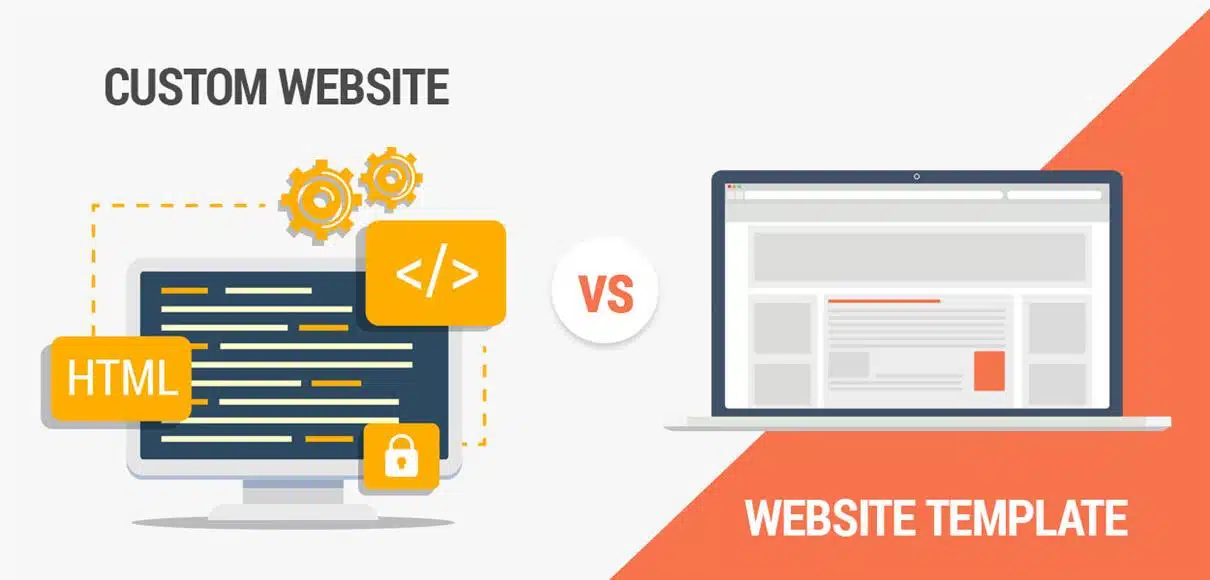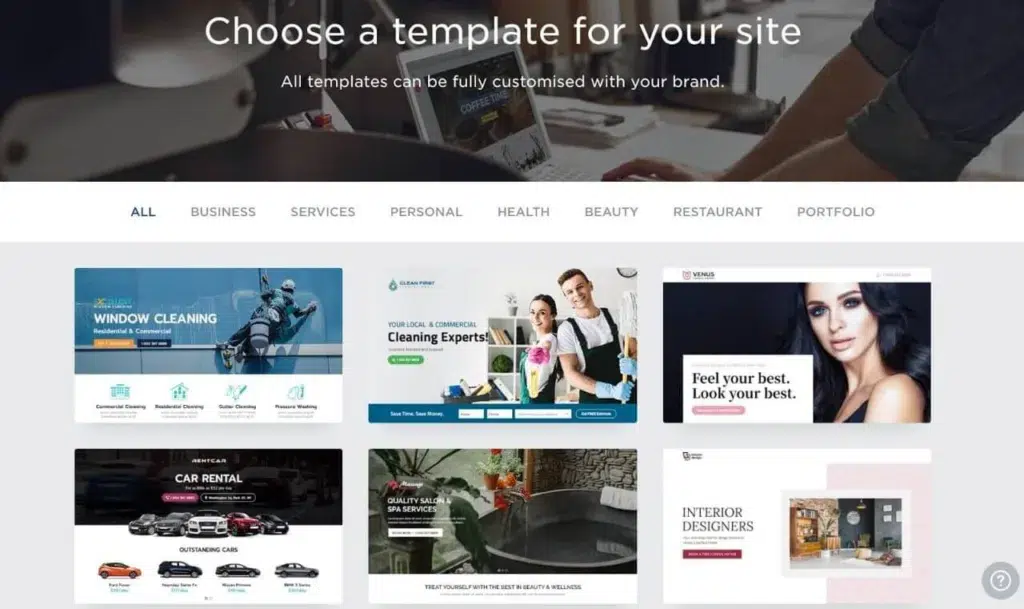Custom Website Page Template: Understanding Its Role in Your Website Project
A custom website page template is a critical element in web development, setting the foundation for the overall structure and consistency of a site. It’s important for clients and designers to be on the same page about what this template is, how it works, and how it affects the outcome of the website. Misunderstandings in this area can lead to frustration and unmet expectations.
In this article, we will dive deep into what a custom website page template truly is, how it works within a website project, and why having a clear understanding of it can significantly benefit both the client and the developer. By the end of this piece, you’ll have a clear picture of what you can expect from a custom website page template and how it can streamline your website’s design and functionality.

What Is a Custom Website Page Template?
Let’s start with the basics: What exactly is a custom website page template?
At its core, a custom website page template is a framework that dictates the layout, structure, and sometimes the functionality of specific pages on a website. It provides a consistent design pattern for various pages, ensuring uniformity in layout and user experience.
Think of a custom website page template as a mold. Just like a mold in manufacturing shapes a product in a consistent way, a page template shapes the content of a website in a predictable and controlled manner.
A well-designed custom website page template serves as the backbone for creating and managing the content on your website. It helps the web design team ensure that the website’s overall look remains cohesive while allowing specific areas to be customized to match different types of content or goals.
What a Custom Website Page Template Is NOT
Before we dive deeper into how a custom website page template works, let’s clarify what it is NOT.
One of the common misconceptions is that when people hear the term “template,” they associate it with the free, pre-made website themes that are widely available on the internet. These generic templates are often used for budget websites, where customization is limited, and the overall design can be bland or uninspiring.
A custom website page template is nothing like that.
It is not a cookie-cutter solution designed for the masses. Instead, it’s a tailored framework built specifically for your website project. It caters to your needs, allowing for flexibility in design and development while maintaining a consistent layout across different pages.
How a Custom Website Page Template Works
Now that we understand what a custom website page template is, let’s explore how it works within a website.
A custom website page template sets the framework for how content will be laid out on a page. For example, on a social media platform like Facebook, the profile page has a specific layout. It includes a profile picture in the top left corner, a banner image at the top, and a grid showing photos and friends underneath. This consistent design ensures that every user profile follows the same structure.
This same concept applies to custom website page templates for websites. A template ensures that specific types of pages—such as the homepage, product pages, or blog posts—follow a consistent structure that is easy to manage and update.
For example, your website might have one custom website page template for the homepage and another for internal pages. The homepage will have a unique design to grab visitors’ attention, while the internal pages may follow a more straightforward, text-heavy layout to convey information clearly.

Why Custom Website Page Templates Matter
A custom website page template is not just about design; it plays a significant role in the overall functionality and user experience of your website. Here are some of the key reasons why these templates are essential:
- Consistency in Design: Custom templates ensure that all pages follow a cohesive design, making your website look polished and professional.
- Easier Maintenance: With a well-structured template, it becomes easy for website administrators to update content without altering the overall design or layout.
- User Experience: A consistent framework ensures that visitors can easily navigate your site, improving usability and engagement.
- Scalability: As your business grows, you can add new pages to the site without the need for complex redesigns, thanks to a flexible custom website page template.
When Projects Go Awry: Managing Expectations
One of the main challenges that can arise when working on a website project is when the client’s expectations do not align with what a custom website page template can deliver.
Sometimes, clients may assume that because the homepage is unique and features multiple design elements, every page on the site will be equally unique and complex. However, this is rarely the case. Most websites have a standard template for internal pages, focusing more on content than on intricate design elements.
This doesn’t mean that internal pages lack individuality; it simply means that they follow a structured framework that ensures the site remains functional and easy to manage. The real challenge lies in managing the balance between design complexity and usability.
The Balance Between Budget and Custom Templates
The level of customization you can expect from your custom website page template largely depends on your project’s budget. Larger budgets allow for more unique templates that can be designed specifically for certain pages, such as case studies, portfolios, or product pages.
For example, if your website includes unique sections like a blog, a news page, or a resources section, you may need custom templates to accommodate the specific needs of those pages.
In contrast, smaller budget projects typically feature fewer custom templates and focus on using a basic framework that applies to most internal pages.
Examples of Pages That Might Require a Custom Template
Some pages on your site might benefit from having a unique custom website page template. Here are a few examples:
- Blog: A blog page often needs a specific design that allows for easy content updates, categorization, and commenting functionality.
- Case Studies: Custom layouts for case studies can help highlight your work and results in a visually engaging manner.
- Testimonials: A dedicated testimonial page with a structured layout can improve your site’s credibility and trustworthiness.
- Portfolio: If your business is visually driven, such as a design or photography agency, a custom portfolio template can showcase your work in the best light.
- Products or Services: A custom product or service page template allows you to create a layout that emphasizes features, benefits, and calls-to-action effectively.
The Development Side of Custom Templates
A custom website page template is not just a front-end design tool; it’s also a back-end solution that simplifies how you manage and update your site.
When a developer creates a custom template, they typically set it up in a way that makes it easy for the client to make changes without needing coding skills. For instance, just as you can easily update your profile picture or add photos on Facebook, a well-designed custom template allows you to update your website content with ease.
This ease of use ensures that you can keep your website fresh and updated without the need for constant developer intervention.
Conclusion: Why You Need a Custom Website Page Template
In conclusion, a custom website page template is a critical component of any web project. It ensures consistency in design, improves usability, and makes your website easy to manage and scale as your business grows.
Understanding the role of a custom website page template and managing expectations from the outset can prevent misunderstandings and ensure a smoother design and development process.
By investing in well-structured custom templates, you set the foundation for a successful website that meets both your business needs and your visitors’ expectations.









Add Comment